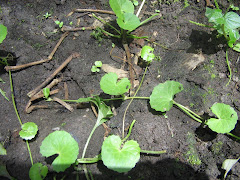
Chromosome Number
The tree is reported a true diploid with 2n=28. The presence of a higher gametic chromosome number (n=14) leads to evolutionary process of allopolyploidisation or a possible diploidisation.
Nature of pollination
The flowers are bisexual, oblique, stalked, axillary and heteromorphic. The plant is highly cross pollinated due to heteropolymorphism and is entomophilous, bees being the pollinators.
Breeding Methods
The trees can be propagated from:-
A) Seed
-Plants produce fruits of unpredicted quality
B) Cuttings
-Plants grow within few months in moist soil for fairly large size cuttings.
Breding methods used for vegetatively propagated crop:-
i) single plant selection
ii) mass selection
iii) exploitation and maintenance of vigour observed in transgressive segregants
The prospects of going for mutation breeding and polyploidy breeding are yet to be explored. Being a perennial tree vegetable, information on inheritance of qualitative, quantitative and threshold characters in the crop are rather limited.
Varieties available
in India...
Jaffna - produce fruits of 60-90 cm in length with a soft flesh and good taste
Chavakacherri murunga - produce fruits of 90-120 cm in length
Chemmurunga - bears red tipped fruits ,flower throughout the year and yield heavy
crops
Kadu murunga - trees growing wild, bearing small and inferior fruits
Palmurungai - friuts of thick pulp and has the best taste among the other varieties
Kodikal murungai - produce short fruits of 15-30 cm in length






No comments:
Post a Comment